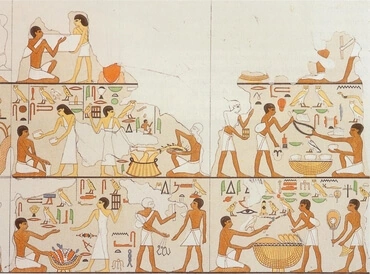Egipto

En la Biblia, Egipto significa conocimiento y amor al conocimiento. En un buen sentido eso significa conocimiento de la verdad del Señor a través de la Biblia, pero en un sentido natural significa simplemente conocimiento terrenal para ser almacenado y poseído. E incluso los conocimientos de la Biblia no siempre son buenos: si los aprendemos con el objetivo de hacerlos útiles, entonces están llenos de ideas angelicales. Pero lo están cuando se aprenden sólo por saber cosas o por la reputación de ser doctos.
Así que Egipto es un lugar al que se va para aprender cosas, pero para llegar a ser celestial hay que escapar del "saber" estéril y viajar a la tierra de Canaán, donde el conocimiento se llena del deseo interno del bien.
Es interesante que cuando Egipto era gobernado por José, era un refugio para su padre y sus hermanos. Esto muestra que cuando la mente interna de una persona gobierna en la tierra del aprendizaje, puede aprender mucho que es útil. Pero eventualmente surgió un faraón que no conocía a José, y los Hijos de Israel fueron esclavizados. El faraón representa la mente externa; cuando está al mando, la excitación y la autocomplacencia del conocimiento pueden reducir la mente interna a un tipo de esclavitud. La mente -como los Hijos de Israel- termina fabricando ladrillos, o falsedades hechas por el hombre a partir de las apariencias externas.
(Izinkomba: Apocalipsis Revelado 503 [1,3,5]; Arcana Coelestia 1461, 5580)
Arcana Coelestia #1461
1461. 'And Abram went down into Egypt to sojourn' means instruction in cognitions from the Word. This is clear from the meaning of 'Egypt' and from the meaning of 'sojourning'. That 'Egypt' means knowledge comprised of cognitions, and 'sojourning' receiving instruction, will be seen in what follows shortly. That the Lord received instruction in childhood as anybody else does is clear from those places in Luke quoted previously at verse 9 in 1457, and also from what has been stated just above concerning the external man, who cannot possibly be made to correspond and accord with the internal man except by means of cognitions. The external man is seated in the body and the senses, and does not receive anything celestial or spiritual unless cognitions are implanted in it as in the soil. Celestial things are able to utilize these as their own recipient vessels, but those cognitions must be from the Word. Cognitions from the Word are such as lie open from the Lord Himself, for the Word itself comes from the Lord by way of heaven, and the Lord's life is present in every single detail of it, though this is not to be seen in the external form. From this it may become clear that in childhood the Lord wished to take in no other cognitions than those of the Word, which, as stated, was laid open to Him from Jehovah Himself, His Father, with whom He was to be united and become one. And that wish was even stronger for the reason that no statement occurs in the Word that does not inmostly have regard to Him and does not in the first place come from Him. For His Human Essence was purely an addition to His Divine Essence which existed from eternity.






